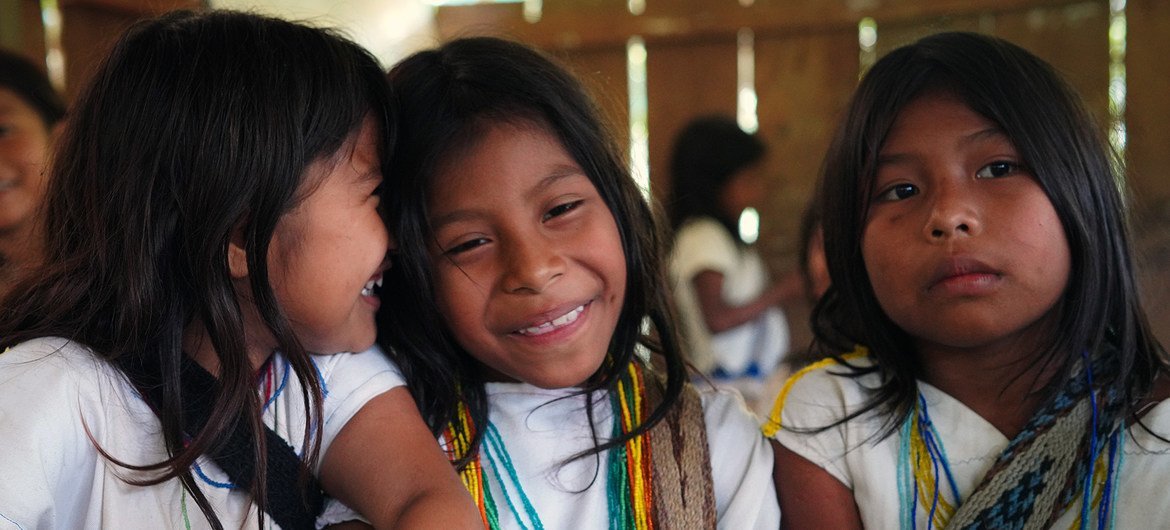UN launches 10-year survival plan for endangered indigenous languages

The UN launched the International Decade of Indigenous Languages on Friday to help them thrive and preserve them. Indigenous peoples have unique cultures and ways of interacting with people and the environment. According to UN General Assembly President Csaba Krosi, preserving their languages is essential for humanity. Indigenous people speak about 4,000 of the world's 6,700 languages, according to UN DESA. Conservative estimates suggest that more than half of all languages will go out by the end of the century. Mr. Krosi returned from the Montreal UN Biodiversity Conference convinced that "if we are to properly conserve the environment, we must listen to indigenous peoples in their own languages." According to the UN Food and Agriculture Organization (FAO), indigenous peoples protect about 80% of biodiversity . Nevertheless, the indigenous language is lost every two weeks, he said,This should definitely raise red flags.
The General Assembly President urged governments to engage with indigenous populations to protect their rights, such as education and resources in their original languages, and prevent exploitation of them and their knowledge. Most importantly, meaningfully consult indigenous peoples during decision-making. said. Indigenous people and UN Ambassadors—sometimes the same—argued for preservation at the launch. Mexican Ambassador Juan Ramón de la Fuente told the 22-member Group of Friends of Indigenous Peoples language is more than words. It characterizes speakers and peoples. He said languages are disappearing rapidly. Leonor Zalabata Torres, Colombia's UN Ambassador, spoke in Ika, one of 65 indigenous languages, amid applause. “Language is the manifestation of wisdom and cultural identity, and the tool that gives meaning to our daily life that we inherited from our ancestors,” she said in Spanish. Indigenous languages are being replaced by majority culture languages, threatening linguistic diversity. Ms. Zalabata Torres said the Colombian government will undertake the 10-year indigenous language plan to strengthen, recognize, document, and revive them.
Representative Aluki Kotierk stated language determines Arctic indigenous nations' political, economic, social, cultural, and spiritual rights. "Every indigenous person who communicates in an indigenous language is self-determining," she said. Ms. Kotierk noted that native tongues and dialects vary in liveliness. “Can stand taller in their own homelands with dignity, knowing that they can function in all sections of their lives, in their own language, accessing important public services in health, justice, and education,” she hopes. Mali doctor Mariam Wallet Med Aboubakrine favors indigenous Africans, notably Tuareg. “Deliver linguistic cultural justice to indigenous peoples,” she suggested for healing and peace. “So that every indigenous woman can cradle and comfort her baby in her language; every indigenous child can play in their language; every young person and adult can express themselves and work in security in their language, including in digital spaces; and to ensure that every elder can transmit their experience,” she said.

